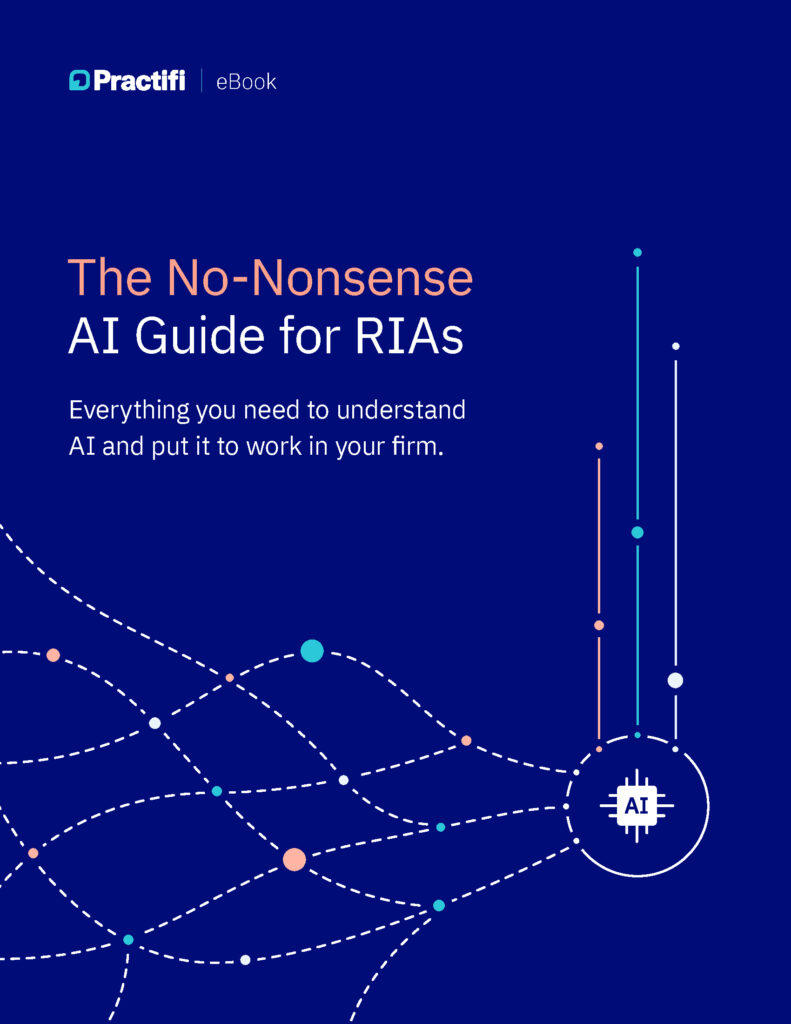
Why Wealth Management Needs a New Kind of CRM
Most CRMs weren’t built for wealth management. They were built for sales.
Their original purpose was simple: capture leads, track activities, move deals through a pipeline. That works for industries with discrete transactions. But advice isn’t transactional and that’s why wealth management needs a different kind of approach.
Wealth management is built on relationships — long-term, trust-driven and often multi-generational. Advisors aren’t just managing outcomes. They’re guiding clients through life transitions, family dynamics, regulatory shifts and firm growth, all while delivering a deeply personal experience. That kind of work doesn’t follow a linear sales path. It evolves across touchpoints and over time with context that can’t be captured in checkboxes and task lists.
Firms have tried their best to adapt traditional CRMs to this reality. They’ve layered on workarounds, added integrations and adjusted workflows. But the cracks are showing: scattered information, rigid processes and loss context. The very systems meant to support advisory work often create more friction than clarity.
As expectations rise, for personalization, efficiency and responsiveness, so does the pressure on firms to modernize. Advisors want tools that work the way they do. Clients expect tailored experiences. And RIAs need CRMs that scale without losing the personal touch.
It’s time to rethink the CRM’s role in wealth management, not by forcing advisors to change their approach, but by building systems that adapt to how the best advisors already work. That’s where a conversational CRM comes to in.
Why CRMs for RIAs Must Evolve
Traditional CRMs focus on what’s easy: tasks, activities, pipelines, deals. In a modern RIA, those surface-level touchpoints only scratch the surface. Firms need support for what happens between the tasks — the context, continuity and depth of the client relationship.
A new client might interact with multiple team members during onboarding. A generational wealth plan might span years of shifting goals, evolving regulations and life changes. A lead doesn’t become a client in a few clicks. It takes time, trust and nuance.
Most CRMs still treat every relationship like a transaction. They expect structured inputs, predefined paths and linear steps. A model that doesn’t hold up in the complexity of advisory work. Wealth firms need a system built around relationships, not records. The best CRM for RIAs should surface relevant context instantly, track the long arcs of client conversations and keep teams aligned without duplicating effort.
And they need it to evolve as they do, because the pace of change in this industry isn’t slowing down. The firms we serve are planning for succession, expanding their teams, evolving their service models and raising the bar on client experience.
AI in Wealth Management: Quiet Power, Real Impact
Ask ten firms what they think about AI, and you’ll hear curiosity, concern, excitement and skepticism. That’s fair. The noise around it has been hard to ignore. But here’s the thing: AI isn’t new. Most firms are already using it, whether they realize it or not. When your phone predicts a calendar conflict or a tool suggests a next step, that’s AI doing quiet, helpful work. The good kind doesn’t interrupt workflows, it fades into them.
That’s exactly how AI should work in a CRM: not replacing advisors, but supporting them in the moments that matter. That might mean surfacing key client context before a meeting, distilling scattered notes into actionable next steps, or recognizing relationship patterns that would otherwise take hours to uncover manually.
AI can also help preserve knowledge across the firm. When a new advisor joins or a key team member leaves, the context behind each relationship shouldn’t disappear with them. That context should live in the system. The right CRM uses AI to make that possible by capturing more than just data; it retains the story behind each relationship.
A Conversational CRM Standard for the Future
The work advisors do is too personal, nuanced and important to be managed by tools never designed standard that them. The future of CRM in wealth management isn’t about more features. The shift ahead requires a new standard that centers the advisor-client relationship, adapts to how firms operate and keeps teams connected, consistent and confident.
A conversational CRM brings the right context to the right moment, and reduces the gap between knowing and acting. It’s not another acronym or trendy phrase to toss around in meetings. It’s a system that works the way advisors already work and evolves with the firms that use it. At Practifi, we’re already thinking with advisors in mind by building features that anticipate needs, automate routine workflows and make follow-up feel less like a task list and more like a natural extension of the relationship. Not abstract ideas. Just practical changes that make work smoother and decisions easier.
Advisors already know how to lead relationships. The right CRM should know how to keep up.












